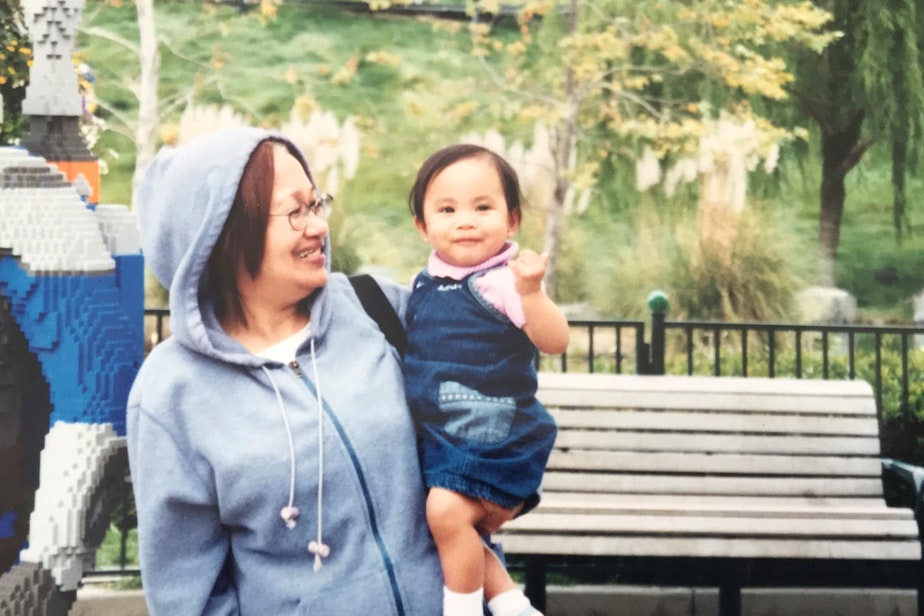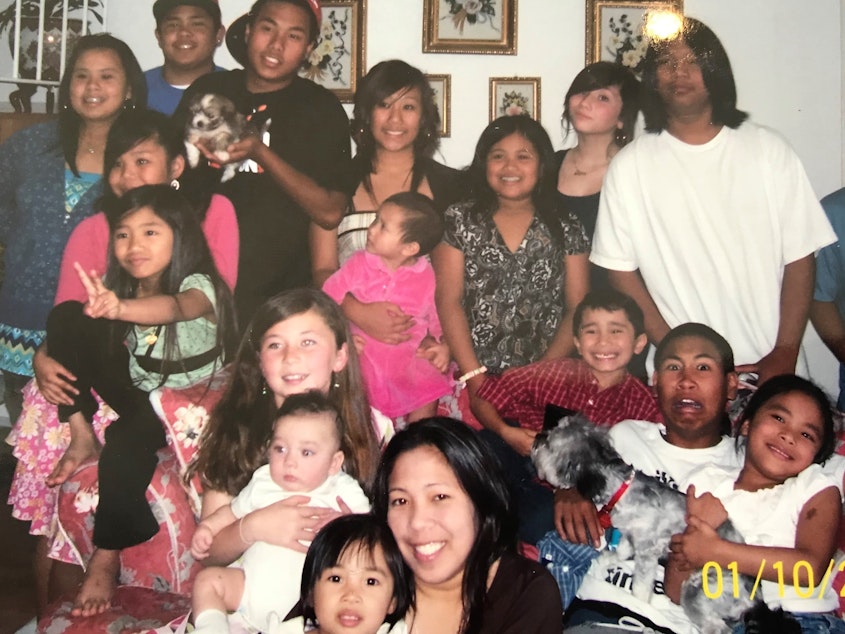Am I less Filipino if I can't speak Tagalog?

R
oselie Isturis taught me everything I needed to know, including how to speak Tagalog.
But as I grew older, she stopped teaching me Tagalog. Now, I worry that I am losing my language.
Even though Roselie is my grandma, I call her mama.
She grew up in Manila, the capital of the Philippines, and came to the United States with my papa, my mom, and her sisters.
Tagalog is my mama's native language, but she told me that speaking Tagalog sometimes caused problems for her after she came to the United States.
At her first American job, her supervisors told her it was rude to speak Tagalog. She remembered them saying, "You're already here in the States. Why are you going to speak Tagalog?"
She also told me a story about my cousin — I call him Kuya AJ — who mixed Tagalog with English. His Kindergarten teacher thought he needed English classes. His mom, my Auntie Brenda, kept arguing with the teacher.
Sponsored
"That's why the teacher said, 'Don't talk to AJ in Tagalog. Talk to him in English.' So that's what we do," my mama said.
As my mama set the table for dinner, I asked her to help me say "I'm proud to be Filipino" in Tagalog.
After some silence, she finally said, "What's the use of teaching you Tagalog? You're not going to the Philippines. It's useless."
G
rowing up in Chula Vista, California, I lived in a Filipino bubble. I didn't think much about my language until another kid made fun of my Tagalog.
Sponsored
He laughed because he said I had a stutter, and that my grammar was messed up, too. I was speechless. And I started to ask myself, how much of a Filipino was I?
I decided to reteach myself Tagalog. I thought that I just had to fix my grammar and learn how to write.
So I took a Tagalog class online. "Kumusta? Ako si Erica. Kinagagalak kong magilalak ka," a woman's voice said on my computer. "How are you? I'm Erica. I'm happy to meet you."
I asked my siblings if they wanted to learn Tagalog with me, but they weren't interested.
"It's good to know you can speak another language," my younger sister Venetia said, "but it takes too much time."
Sponsored
My little brother Andreix — we call him Buboy — said he was already good at speaking English.
"I might get mixed up with both languages," Andreix said. He then made up words he thought sounded like Tagalog, and that made both of them laugh.
I told my siblings that Tagalog helped us to pass on our culture and connect us to our Filipino background. But that made me ask myself questions, like what are the most important parts of my culture?
I knew language was important to me, and I wanted to know if other Filipinos felt the same way.
So I visited Southcenter Mall in Tukwila. There's a corner of the mall with Filipino restaurants and Seafood City, a Filipino supermarket. I wanted to talk to some shoppers about whether they thought that the younger generations of Filipinos should learn Tagalog.
Sponsored
"It runs in our blood," Albert Lakaska said. "If you're Filipino blood, you should learn how to speak Tagalog and Ilocano."
Sheila Reyes Ramirez shared a similar view: "Mas-madali mag express lahat in Tagalog especially pagpa Pilipino pagusapan natin na nararandaman natin sa at isa isa kahit hindi na sinasabi lahat ng mga bagay bagay," she said. "It's easy to express yourself in Tagalog, especially if you're Filipino talking to another Filipino. When we speak, we feel what the other feels, even if we don't say everything."

In the car on our way back from the mall, I asked my mama for the real reason why she never spoke to me, my siblings, or my cousins in Tagalog.
"They not gonna remember anything," she told me. "It's useless."
Sponsored
For my mama, knowing how to speak Tagalog is a burden because we live in the United States now.
But learning Tagalog made me feel more Filipino. So I kept practicing.
The next day, I found my Tagalog workbook on my bed with corrections and notes from my mama. When I asked her if my sentences were correct, she smiled and told me I did a good job.
Ipinagmamalaki ako magiging Pilipino.
I'm proud to be Filipino.
This story was created in KUOW's RadioActive Intro to Journalism Workshop for 15- to 18-year-olds at Jack Straw Cultural Center, with production support from Andrew Stuckey. Edited by Ruby de Luna.
Find RadioActive on Facebook, Twitter and Instagram, and on the RadioActive podcast.



